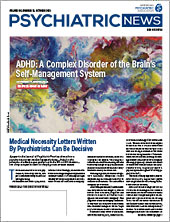Former President Donald J. Trump’s 2017 executive order “Protecting the Nation From Foreign Terrorist Entry Into the United States” may have influenced the way people in the United States who were born in Muslim-majority countries used health care services, a study in JAMA Network Open suggests. The study found an increase in missed primary care appointments and increased emergency department visits among people in this population living in Minneapolis-St. Paul. The executive order, also known as the “Muslim ban,” prevented citizens from Iran, Iraq, Libya, Somalia, Sudan, Syria, and Yemen from traveling or immigrating to the United States.
Elizabeth A. Samuels, M.D., M.P.H., M.H.S., an assistant professor of emergency medicine at the Alpert Medical School of Brown University in Providence, R.I., and colleagues analyzed data from 252,594 adult patients who were treated at Minneapolis-St. Paul HealthPartners primary care clinics or emergency departments between January 1, 2016, and December 31, 2017. They grouped patients into three categories: those born in countries targeted by the Muslim ban (5,667 patients), those born in Muslim-majority nations not listed in the ban (1,254 patients), and those who were non-Latinx and were born in the United States (245,673 patients).
In the year after Trump issued the ban, there were 101 additional missed primary care appointments among patients from Muslim-majority countries not named in the ban compared with non-Latinx patients born in the United States. There were also 232 additional emergency department visits by patients from countries named in the ban compared with non-Latinx patients born in the United States, with the sharpest increase occurring in the first 30 to 60 days after the ban was issued. Emergency department visits for stress-responsive diagnoses such as acute coronary syndrome, suicidal attempts, and syncope increased among patients from countries named in the ban compared with non-Latinx patients born in the United States.
The researchers also found that after the beginning of 2016 but before the Muslim ban—campaign season and the election—primary care visits for stress-related conditions had been rising among people in the first two groups, those born in Muslim-majority nations. These primary care visits were for stress-related conditions in six categories: mental health, sleep disorders, gastrointestinal symptoms, neurologic symptoms, food-related disorders, and pain syndromes.
The study’s results may reflect a phenomenon already set in motion before Trump was elected, Samuels told Psychiatric News.
“As we conducted this analysis, it became more and more apparent that it was difficult to isolate the effects of the ‘Muslim ban’ as a discrete event from the broader political context,” Samuels said. “We think the changes observed are likely related to increasing anti-Muslim and anti-immigrant rhetoric in the public discourse throughout the 2016 election.”
Samuels said that there is still a lot of work to be done to identify and understand the needs of different immigrant and refugee groups, including people from Muslim-majority countries.
“We studied a very heterogeneous group of people from different countries who arrived in the U.S. due to a variety of different situations and prior experiences,” Samuels said, noting that none of the situations or experiences was measured directly in the study. “Researchers, health care professionals, and public health workers need to work in collaboration with community-based groups serving these communities to assess and attend to the needs of these populations more fully.”
The researchers did not report any study-specific funding for this work. ■
“Health Care Utilization Before and After the ‘Muslim Ban’ Executive Order Among People Born in Muslim-Majority Countries and Living in the US” is posted
here.

